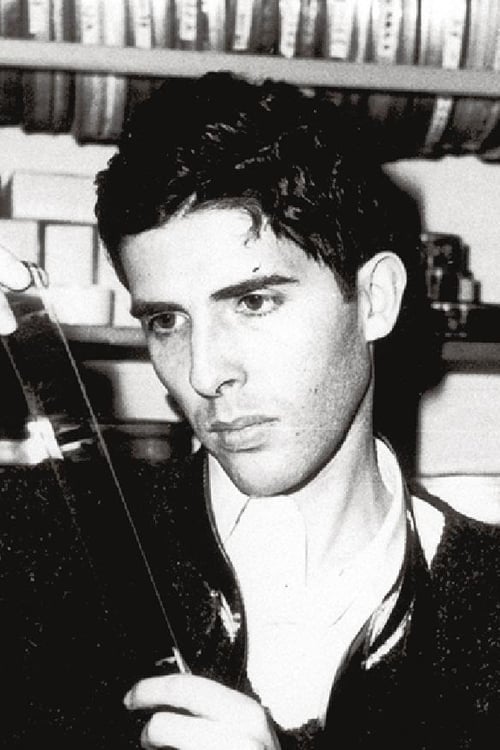
Self (archive footage)
'A Távola de Rocha' enables us to enter Paulo Rocha’s universe, to gather memories and find, within his personal and professional relationships, a key to decipher some of the unknown symbols and allusions contained in his films.
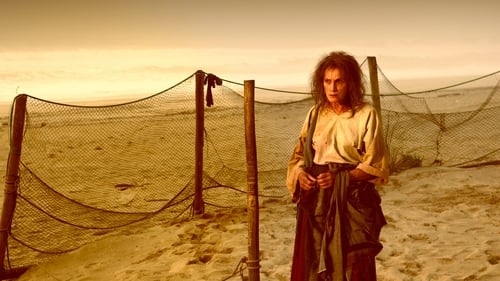
1920s. Vitalino, a small farmer from São Vicente sees his father die of the epidemic which decimated the country. Some years later, of all the brothers, Vitalino is the strongest and takes his father’s place in the house. But the village is too small for his aspirations and he decides to head to Brazil, leaving his sisters in charge of the household. In parallel with Vitalino’s story, If I Were a Thief… I’d Steal portrays the world of Paulo Rocha rummaging through his films and ghosts over the years.

Screenplay
1920s. Vitalino, a small farmer from São Vicente sees his father die of the epidemic which decimated the country. Some years later, of all the brothers, Vitalino is the strongest and takes his father’s place in the house. But the village is too small for his aspirations and he decides to head to Brazil, leaving his sisters in charge of the household. In parallel with Vitalino’s story, If I Were a Thief… I’d Steal portrays the world of Paulo Rocha rummaging through his films and ghosts over the years.

Producer
1920s. Vitalino, a small farmer from São Vicente sees his father die of the epidemic which decimated the country. Some years later, of all the brothers, Vitalino is the strongest and takes his father’s place in the house. But the village is too small for his aspirations and he decides to head to Brazil, leaving his sisters in charge of the household. In parallel with Vitalino’s story, If I Were a Thief… I’d Steal portrays the world of Paulo Rocha rummaging through his films and ghosts over the years.

Director
1920s. Vitalino, a small farmer from São Vicente sees his father die of the epidemic which decimated the country. Some years later, of all the brothers, Vitalino is the strongest and takes his father’s place in the house. But the village is too small for his aspirations and he decides to head to Brazil, leaving his sisters in charge of the household. In parallel with Vitalino’s story, If I Were a Thief… I’d Steal portrays the world of Paulo Rocha rummaging through his films and ghosts over the years.

Mesmerized by the songs of Peroguarda villagers in southern Portugal’s Alentejo region, young Portuguese modern poet Antonio Reis, Corsican researcher of Portuguese folk music Michel Giacometti, and film director Paulo Rocha visited the village one after another in the late 1950s. This work refreshes the soul and flows with songs and poetry seeped in sadness, as well as the atmosphere of the quiet sea and village, fields adorned with vibrant red flowers, and roads traveled by Reis and the others, while interspersing images from Paulo Rocha’s films.

Producer
Arriving in a hotel in the city of Faro, a couple learns there are no available tables left. When another couple agrees to share a table, they spark a conversation on the city’s history, unfolding the tales of King Afonso III, who betrays his wife, and of a Moorish woman, who betrays her father.

Producer
The way in which we cross, one time only, the space of a public swimming pool reminds us of life, from birth until the end.

Producer
In mid-September 1992, journalist Guida Fontes have to go to Luanda to cover the elections in Angola. In the meantime, she had committed herself to discovering and interviewing the poet Júlio Vera. In 1988, he wrote a series of poems in which he mysteriously anticipated the fall of the USSR. Guida has only 12 days to complete the mission.

Producer
Vanitas is the new feature film by veteran Portuguese director Paulo Rocha. With a script by Regina Guimarães, the film brings together actresses Isabel Ruth and Joana Bárcia – no strangers to this director's world – in a story about a depressed fashion designer who falls in love with the daughter of one her tailors.

Director
Vanitas is the new feature film by veteran Portuguese director Paulo Rocha. With a script by Regina Guimarães, the film brings together actresses Isabel Ruth and Joana Bárcia – no strangers to this director's world – in a story about a depressed fashion designer who falls in love with the daughter of one her tailors.

Director
The night of the summer solstice. Fireworks resound between the two banks of the river like a bombardment. On the water, boats appear and disappear. Lost in the dark, rich and poor dissolve under the coloured firework lights. Is it war? Is it the light of the sky descending upon them? Is it the Apocalypse? Is it a fresh new start or the end of the world has come?

Producer
Set in the Lisbon during the festivities of Saint Anthony, the patron saint of lovers and the old town. The story is about Cato, a nationalist politician who is charismatic and unscrupulous. He obsessively pursues Silvia, a mystical and mysterious young transvestite whom he meets at the festival. When Silvia runs into Vicente, a policeman who arrests transvestites and threatens them, Silvia must look towards blackmail to save herself. Compromising photos of Cato start to emerge among opposition parties and he must do all in his power to save his political career.

Screenplay
Set in the Lisbon during the festivities of Saint Anthony, the patron saint of lovers and the old town. The story is about Cato, a nationalist politician who is charismatic and unscrupulous. He obsessively pursues Silvia, a mystical and mysterious young transvestite whom he meets at the festival. When Silvia runs into Vicente, a policeman who arrests transvestites and threatens them, Silvia must look towards blackmail to save herself. Compromising photos of Cato start to emerge among opposition parties and he must do all in his power to save his political career.

Director
Set in the Lisbon during the festivities of Saint Anthony, the patron saint of lovers and the old town. The story is about Cato, a nationalist politician who is charismatic and unscrupulous. He obsessively pursues Silvia, a mystical and mysterious young transvestite whom he meets at the festival. When Silvia runs into Vicente, a policeman who arrests transvestites and threatens them, Silvia must look towards blackmail to save herself. Compromising photos of Cato start to emerge among opposition parties and he must do all in his power to save his political career.

Producer
A documentary about a family of goat herders in Portugal and the relationship between man and animals.

Director
A play directed by Silvina Pereira and filmed by Paulo Rocha.

Editor
Carolina, an aging local grande dame who works at a crossing point on the titular river, marries another late-in-life character, the dredging-boat operator Antonio. Not long after their union, she becomes intensely jealous of Antonio's fondness for their winsome goddaughter, Joana, and insinuates herself into a relationship brewing between Joana and a mystical gypsy gold salesman. Soon, tempers are flaring, mystical secrets are being revealed and death is hovering over the central characters.

Screenplay
Carolina, an aging local grande dame who works at a crossing point on the titular river, marries another late-in-life character, the dredging-boat operator Antonio. Not long after their union, she becomes intensely jealous of Antonio's fondness for their winsome goddaughter, Joana, and insinuates herself into a relationship brewing between Joana and a mystical gypsy gold salesman. Soon, tempers are flaring, mystical secrets are being revealed and death is hovering over the central characters.

Director
Carolina, an aging local grande dame who works at a crossing point on the titular river, marries another late-in-life character, the dredging-boat operator Antonio. Not long after their union, she becomes intensely jealous of Antonio's fondness for their winsome goddaughter, Joana, and insinuates herself into a relationship brewing between Joana and a mystical gypsy gold salesman. Soon, tempers are flaring, mystical secrets are being revealed and death is hovering over the central characters.

Writer
Documentary about Japanese film director Shohei Imamura.

Director
Documentary about Japanese film director Shohei Imamura.

The city during the beginning of cinema. The typical city at the time of the dictatorship. The New Lisbon of the New Cinema. Lisbon after the Revolution. The white city of foreigners. A geographical and moviegoer screenplay of Lisbon through the images of films and testimonies of several filmmakers who filmed in Lisbon.

Spino, a pathologist, receives an unidentified body which looks familiar to him... himself, 30 years younger.

Director
Paulo Rocha catches up with his “beloved subject” in Porto, where he made Douro, Faina Fluvial in 1929, and where today Oliveira reminisces about the figure of his father, his first experience of cinema as an actor, his past as a racing driver, his first technical experiences…

Director
Theatrical dramatization of Island of Loves.
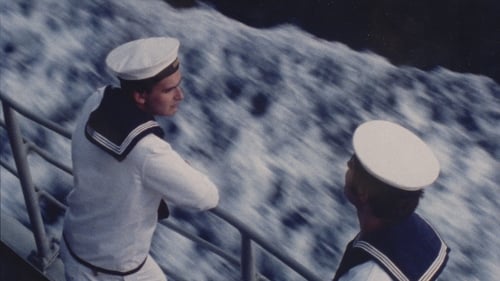
Hostel Doorman
Freely based on Gide ('Paludes') and Hawthorne ('Wakefield'), this is a film about a writer who never wrote anything and who blows at nightfall the breath of frost. The poem by Carlos Queiroz to which the above sentences belong is not cited in 'O som da Terra a Tremer', but the atmosphere is that, between written letters never received. Fiction within fiction, stories within stories, like those Chinese boxes in which there is always one inside another. Or the two margins of the same river, always being lateral.
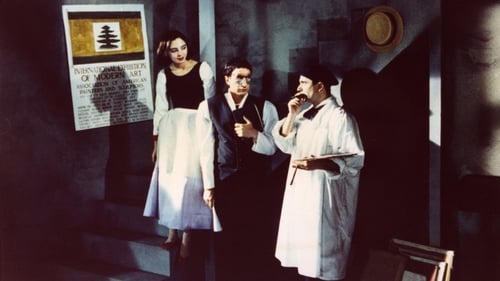
Producer
A world of strong colours between documentary and fiction, centered on the life and work of modernist painter Amadeo de Souza Cardoso.

Screenplay
A world of strong colours between documentary and fiction, centered on the life and work of modernist painter Amadeo de Souza Cardoso.

Director
A world of strong colours between documentary and fiction, centered on the life and work of modernist painter Amadeo de Souza Cardoso.

The Melomaniac
A young woman, working as sales-girl at a shopping center's music shop, wants someone with whom to share her secrets. A distant mother separating from her father, an aunt who emigrated to France, and her pre-adolescent sister, can't do - neither the boyfriend. Such a confident arrives unexpectedly - but then there are three of them, one too much. One leaves, but then another young man arrives, and there are three again. One must go. A sad young adult love story, told in the first person, singular - and ultimately alone, under the rain.

Screenplay
This visually striking drama is taken from the classic Japanese novel Tales Of Genji by Marasaki Shikibu. Set in modern Portugal, Joao (Luis Miguel Cintra) is a left-wing political leader and ladies man with a bright future. His ex-wife Isabel (Manuela de Freitas) both loves and hates him as Joao plays on her wavering emotional state. He is sent to Italy to retrieve wayward family member Antonia (Caroline Chaniolleau), the beautiful young woman with a terrorist boyfriend. Joao is forced to recognize his feelings as the political and amorous climate changes around him.

Producer
This visually striking drama is taken from the classic Japanese novel Tales Of Genji by Marasaki Shikibu. Set in modern Portugal, Joao (Luis Miguel Cintra) is a left-wing political leader and ladies man with a bright future. His ex-wife Isabel (Manuela de Freitas) both loves and hates him as Joao plays on her wavering emotional state. He is sent to Italy to retrieve wayward family member Antonia (Caroline Chaniolleau), the beautiful young woman with a terrorist boyfriend. Joao is forced to recognize his feelings as the political and amorous climate changes around him.

Director
This visually striking drama is taken from the classic Japanese novel Tales Of Genji by Marasaki Shikibu. Set in modern Portugal, Joao (Luis Miguel Cintra) is a left-wing political leader and ladies man with a bright future. His ex-wife Isabel (Manuela de Freitas) both loves and hates him as Joao plays on her wavering emotional state. He is sent to Italy to retrieve wayward family member Antonia (Caroline Chaniolleau), the beautiful young woman with a terrorist boyfriend. Joao is forced to recognize his feelings as the political and amorous climate changes around him.

Ambulatory history, freely inspired by Georg Büchner's biography (1813-37) and the reasons that led him first to political intervention and then to strict isolation. With students of unidentified present time (1968? 1970?), the themes developed, in Büchner, are triggered by the publication of "The Messenger of Hesse", a pamphlet addressed to the peasants, urging them to revolt. Their misunderstanding, as well as the repression of the young revolutionaries, leads Büchner to a particularly skeptical and painful attitude...

Premier Prête
During the century of the Spanish Gold, Doña Prouhèze, wife of a nobleman, deeply loves Don Rodrigo, who is forced to leave Spain and go to America. Meanwhile Prouhèze is sent to Africa to rule the city of Mogador. Ten years later Rodrigo leaves America and travels to Africa in search of Prouhèze to find out that she died and eventually meeting her daughter.

Self
This film, made as a "twin" of A ilha dos amores, was planned as a poetic documentary on the enigmatic life of Wenceslau de Moraes (1855-1929), the great Portuguese writer who lived in the Far East. Verbal testimony, photographs, manuscripts, images of Lisbon, Macao, Kobe and Tokushima in Moraes' time are set side by side with A ilha dos amores and with de Moraes' writings. The director, Paulo Rocha, visited places where Moraes was still remembered, interviewed the writers descendants, consulted archives, rummaged through memories, appointment books, postcards, diaries and calendars from the private life of the 19th century. And above all he set out on a new journey, from Lisbon to Macao to Kobe until he reached Tokushima, where Moraes lived through the final ruin of his life and where Rocha tracks down, between the city and the cemetery, the living presence of places and the memories of individuals.

Writer
This film, made as a "twin" of A ilha dos amores, was planned as a poetic documentary on the enigmatic life of Wenceslau de Moraes (1855-1929), the great Portuguese writer who lived in the Far East. Verbal testimony, photographs, manuscripts, images of Lisbon, Macao, Kobe and Tokushima in Moraes' time are set side by side with A ilha dos amores and with de Moraes' writings. The director, Paulo Rocha, visited places where Moraes was still remembered, interviewed the writers descendants, consulted archives, rummaged through memories, appointment books, postcards, diaries and calendars from the private life of the 19th century. And above all he set out on a new journey, from Lisbon to Macao to Kobe until he reached Tokushima, where Moraes lived through the final ruin of his life and where Rocha tracks down, between the city and the cemetery, the living presence of places and the memories of individuals.

Director
This film, made as a "twin" of A ilha dos amores, was planned as a poetic documentary on the enigmatic life of Wenceslau de Moraes (1855-1929), the great Portuguese writer who lived in the Far East. Verbal testimony, photographs, manuscripts, images of Lisbon, Macao, Kobe and Tokushima in Moraes' time are set side by side with A ilha dos amores and with de Moraes' writings. The director, Paulo Rocha, visited places where Moraes was still remembered, interviewed the writers descendants, consulted archives, rummaged through memories, appointment books, postcards, diaries and calendars from the private life of the 19th century. And above all he set out on a new journey, from Lisbon to Macao to Kobe until he reached Tokushima, where Moraes lived through the final ruin of his life and where Rocha tracks down, between the city and the cemetery, the living presence of places and the memories of individuals.

Producer
This film depicts the life of the 19th-century Portuguese writer Wenceslau De Moraes by means of nine ancient ballads from China. The writer married a Chinese woman after he left his wife and family to go live in Macao. Later, he moved to Japan where he fell in love with a Japanese woman, staying in Japan for the rest of his life. Mixed in with the career and loves of Moraes is the history of Portugal at home and in its colonies.

Screenplay
This film depicts the life of the 19th-century Portuguese writer Wenceslau De Moraes by means of nine ancient ballads from China. The writer married a Chinese woman after he left his wife and family to go live in Macao. Later, he moved to Japan where he fell in love with a Japanese woman, staying in Japan for the rest of his life. Mixed in with the career and loves of Moraes is the history of Portugal at home and in its colonies.

Camilo Pessanha
This film depicts the life of the 19th-century Portuguese writer Wenceslau De Moraes by means of nine ancient ballads from China. The writer married a Chinese woman after he left his wife and family to go live in Macao. Later, he moved to Japan where he fell in love with a Japanese woman, staying in Japan for the rest of his life. Mixed in with the career and loves of Moraes is the history of Portugal at home and in its colonies.

Director
This film depicts the life of the 19th-century Portuguese writer Wenceslau De Moraes by means of nine ancient ballads from China. The writer married a Chinese woman after he left his wife and family to go live in Macao. Later, he moved to Japan where he fell in love with a Japanese woman, staying in Japan for the rest of his life. Mixed in with the career and loves of Moraes is the history of Portugal at home and in its colonies.
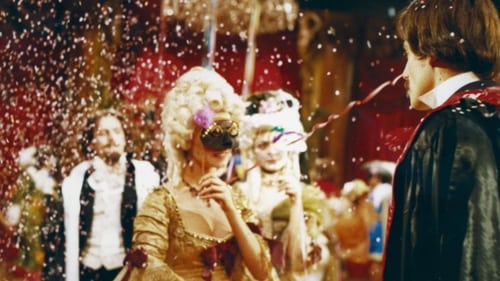
Doctor
The life of a young man, son of an English officer who lets himself become a prisoner of love resulting in fatalism and disgrace.

Director
A representation of fiction and documentary about the museum of Óbidos, Portugal.

Director
Short film on the creation of an agricultural cooperative in the village of Sever do Vouga.
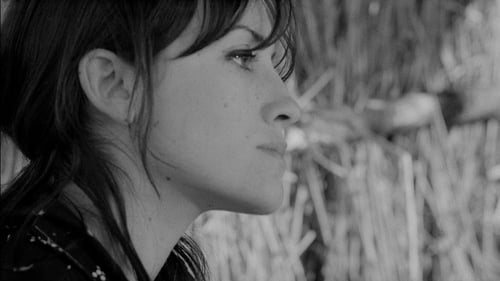
Editor
After a stint in the army fighting in Angola, a soldier comes home to find his sweetheart has married his brother. He makes advances towards his sister-in-law, but she turns him down. Discouraged, the man meets a new girlfriend who vows to escape the town's crushing poverty even if she has to steal.

Screenplay
After a stint in the army fighting in Angola, a soldier comes home to find his sweetheart has married his brother. He makes advances towards his sister-in-law, but she turns him down. Discouraged, the man meets a new girlfriend who vows to escape the town's crushing poverty even if she has to steal.

Director
After a stint in the army fighting in Angola, a soldier comes home to find his sweetheart has married his brother. He makes advances towards his sister-in-law, but she turns him down. Discouraged, the man meets a new girlfriend who vows to escape the town's crushing poverty even if she has to steal.

Assistant Director
Two friends decide to go hunting but without guns, so that no accident will happen. As they stroll and talk, one of them falls into a hole in a hidden marshland. His friend runs away, and manages to gather a number of men that were in the vicinity. They form a human chain to pull the victim out, but their affliction mounts, as they have no strategy for doing it, and they can't understand each other.

Screenplay
Nineteen-year-old Julio heads to Lisbon from the provinces and gets a job as a shoemaker for his uncle Raul. But when he meets Ilda, a confident young housemaid who becomes a regular shop visitor, his working-class values collide with the bourgeois trappings of modern life.

Director
Nineteen-year-old Julio heads to Lisbon from the provinces and gets a job as a shoemaker for his uncle Raul. But when he meets Ilda, a confident young housemaid who becomes a regular shop visitor, his working-class values collide with the bourgeois trappings of modern life.

Assistant Director
Local people of Curalha, a small village, keep a tradition of representing the Passion of Jesus, according to a 16th century text.

Assistant Director Trainee
Each day, Man must work around the clock to produce and acquire bread: throwing the seeds into earth, helping the breeding of the corn, the corn's recolt, transport to the mills - traditional or industrial ones -, manipulation of the flour into actual bread, transport to a variety of locations and consumers. And then, after the consumption, the cycle restarts.
